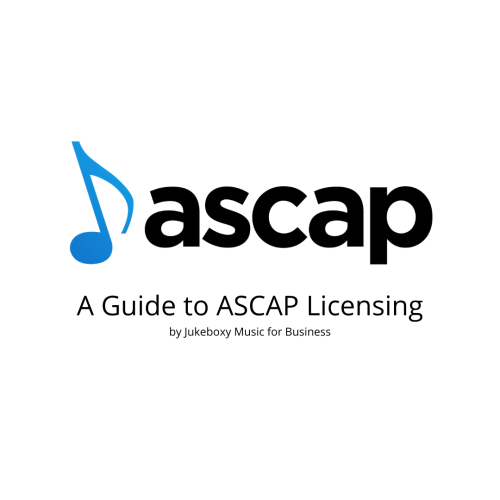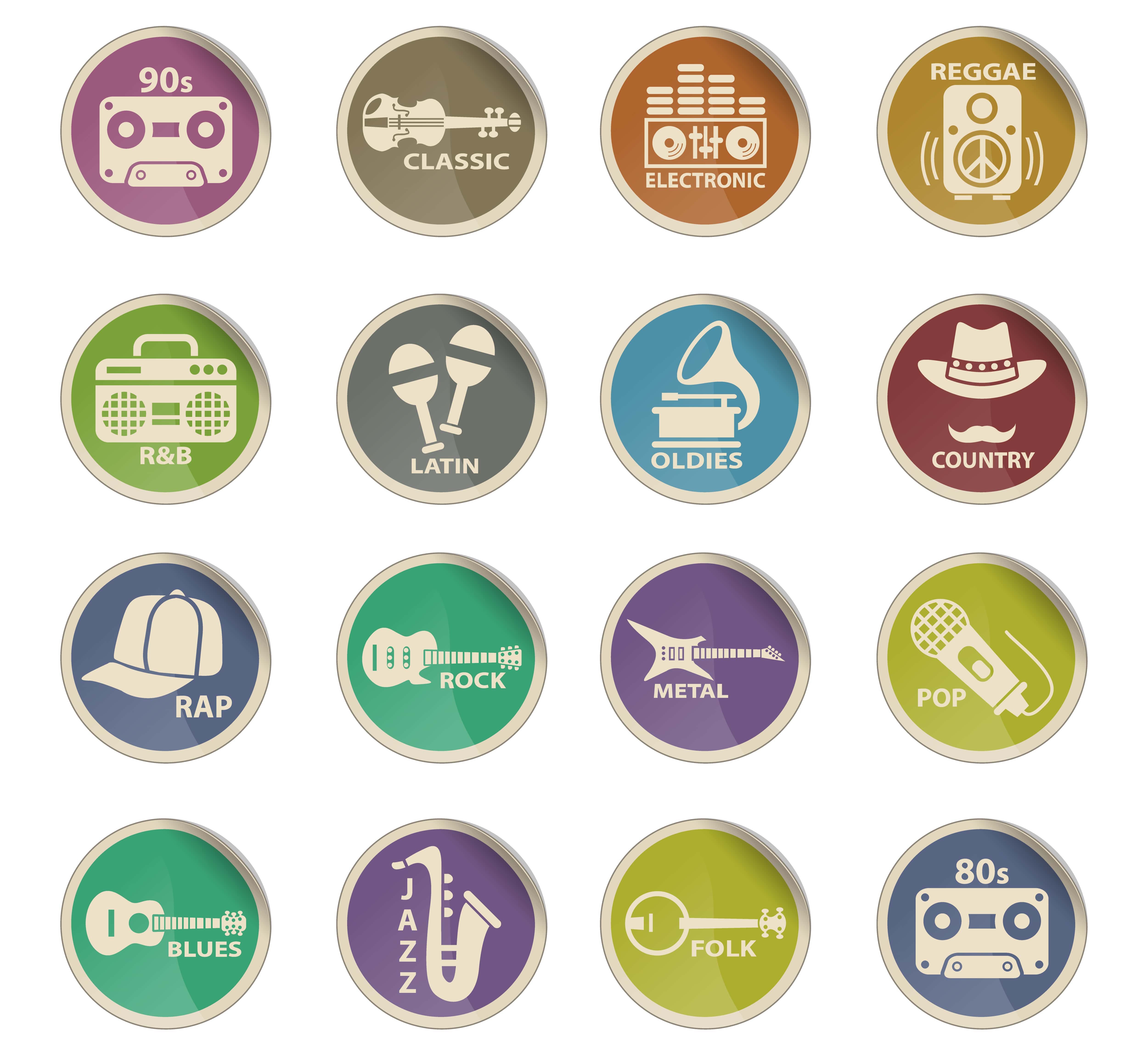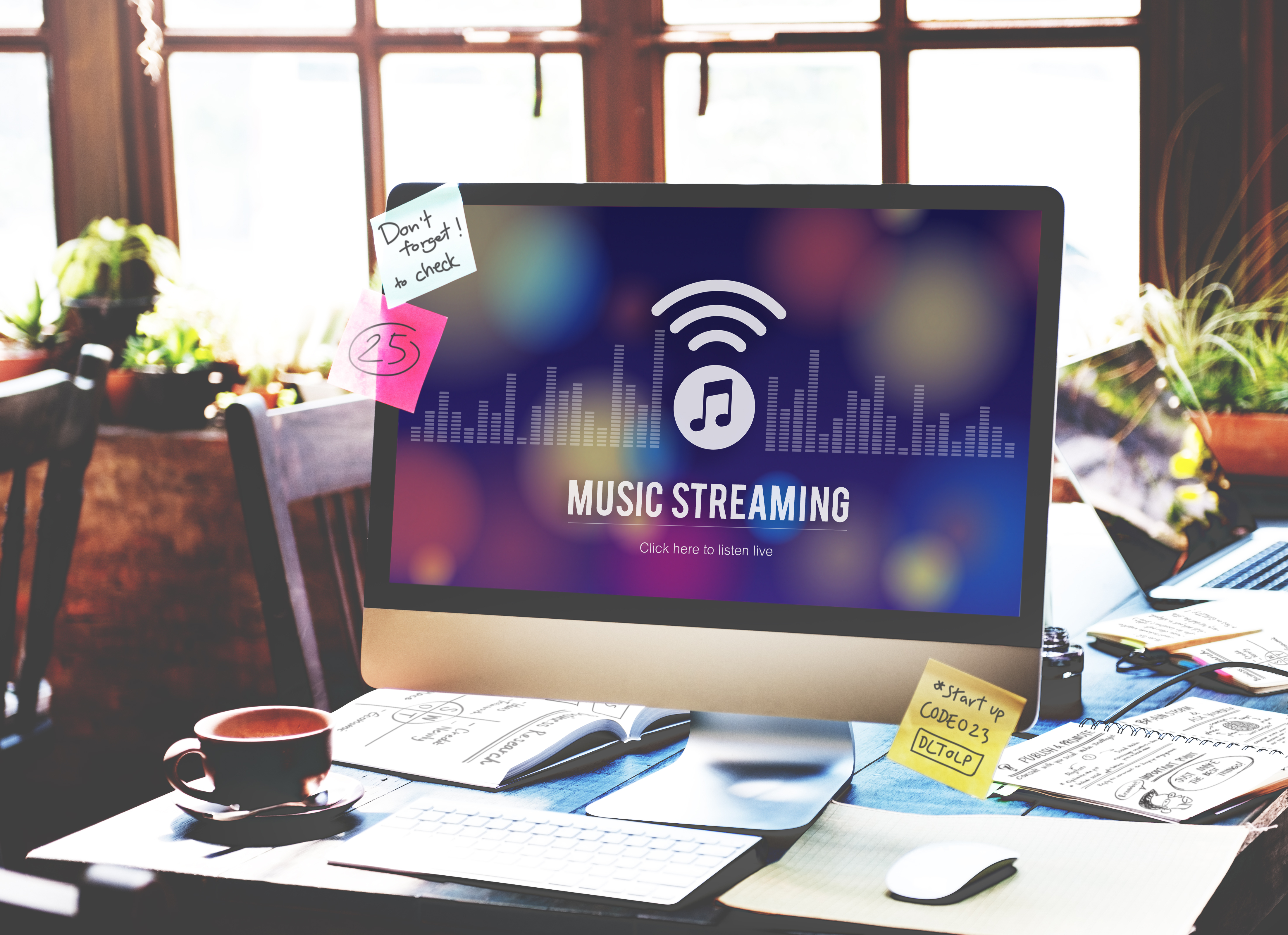
Suppose you own a business or about to open a new business, and you are looking into streaming music. In that case, you probably have been searching for Spotify for business to find the equivalent of Spotify service that is legal to stream in your business. Well, there is really no Spotify for business, but there are options.
A little background on the U.S. Copyright Act and streaming music legally in your business
In the U.S.A, Performing Rights Organizations known as PROs are responsible for collecting “performing rights” royalties on behalf of songwriters, composers, and music publishers when their music is broadcasted or performed publicly.
“Performing right” means the right to perform music in public spaces such as restaurants or retail shops through a CD, radio, or a streaming service. To publicly and legally perform or stream the music at an establishment, a song must be obtained from the copyright holder or the PROs. This regulation is part of the U.S. Copyright Act, which requests payments to the music’s songwriter, composer, and music publisher.
Failing to obtain these licenses and not to comply with Copyright Law has severe consequences.
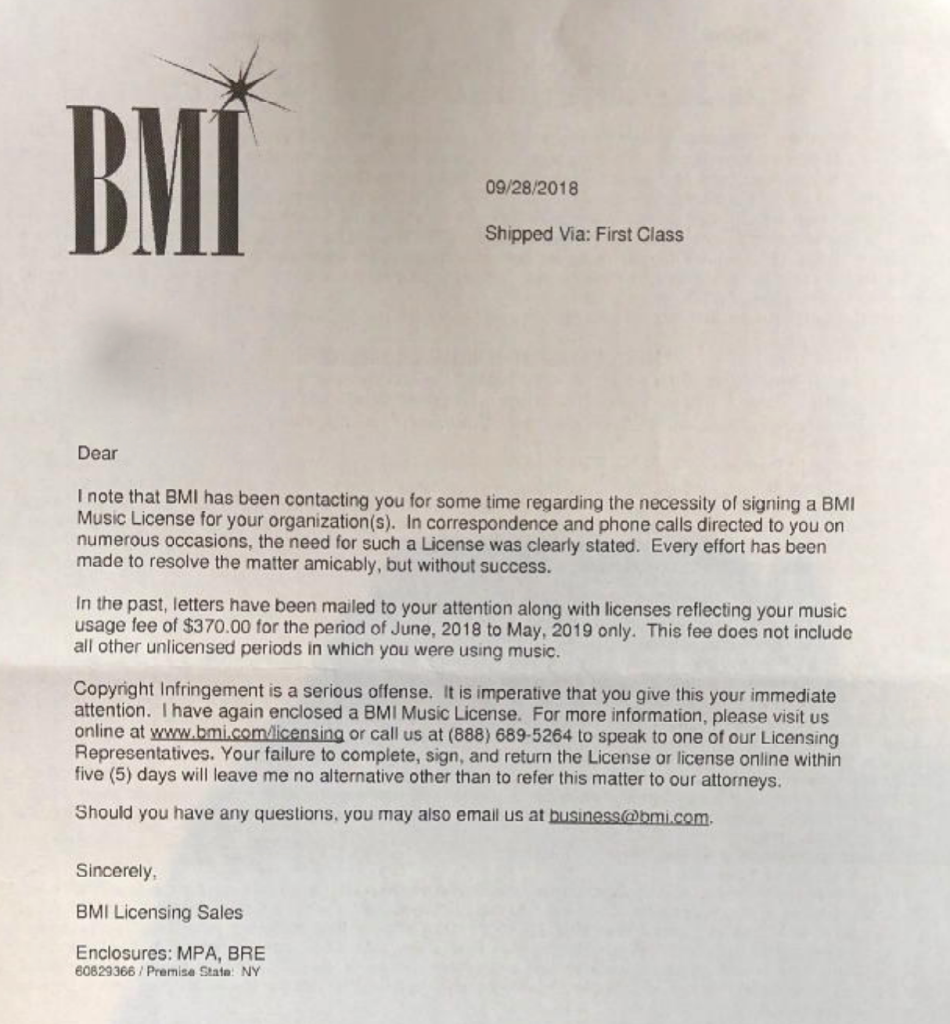
What are the consequences of ignoring music licensing law?
You will be fined, or worst, you will be sued! When a PRO finds out that you are not complying with the music licensing law, you will be fined! You may say there is no way they can know, but they know one way or another. They find out about store openings, happy hours, live-music events through social media, e-newsletters, and other platforms.
PROs often send agents to businesses who take notes of the songs that played at the venue and report back to the PRO. If the PRO finds out the venue played songs that they own the rights to, they will contact the business via phone calls, emails, and mail.
If the business ignores these notices, they will receive a final letter; “Cease & Desist Notice.” The business will have five days to reply to that notice, and if you fail to do so, the worst will happen. They will sue the company and take them to court!
In 2019, XY Bar in Wichita experienced precisely that! BMI sent an agent to the bar and found out that the venue streamed five songs that BMI owned the pieces’ rights. They contacted the business multiple times by phone, mail, and email to help the establishment obtain the music licenses to comply with Copyright Law. When all their efforts have failed, they filed a lawsuit as a very last resort.
According to The Wichita Eagle, the lawsuit seeks an unspecified amount in damages and a trial to be held in Wichita.
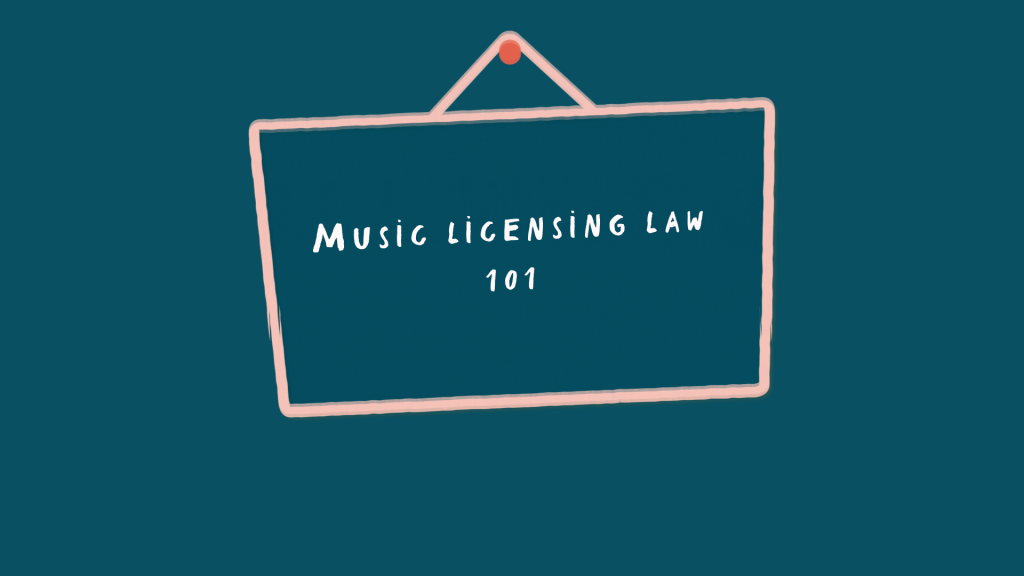
Another lawsuit in 2017 against a Washington business was seeking $3,000 to $120,000 for just four songs that ASCAP owned the rights.
Unfortunately, some businesses had to close their businesses permanently because they simply couldn’t pay the hefty fines.
These regulations or lawsuits may sound extreme; however, there is another side of the story to consider. These organizations help songwriters, composers, and music publishers to get paid for their musical work, who otherwise cannot collect the royalty fees. It is a known fact that playing the right music at a business increases sales, as mentioned in our previous article.
While businesses benefit from the music they played, why the owner of the piece should not? That’s precisely what these organizations are doing, protecting the “musical work” of an artist!
Can I use Spotify in my business?
The short answer is, No! The long answer is you cannot play Spotify or any other personal use service like Apple Music and Pandora in your business. As their “user agreement” mentions, “…you promise and agree that you are using the Spotify Service and Content for your own personal, non-commercial use…” By using Spotify at your business, you are not only cutting payments from the artists, but you are also illegally playing music at your venue.
Since “Spotify for Business” is not available, you still have so many options to stream business-friendly and expertly curated playlists in your business by subscribing to one of the commercially licensed background music providers. These services will help your business comply with the Copyright Law at the friction of a cost and prevent further litigations.



